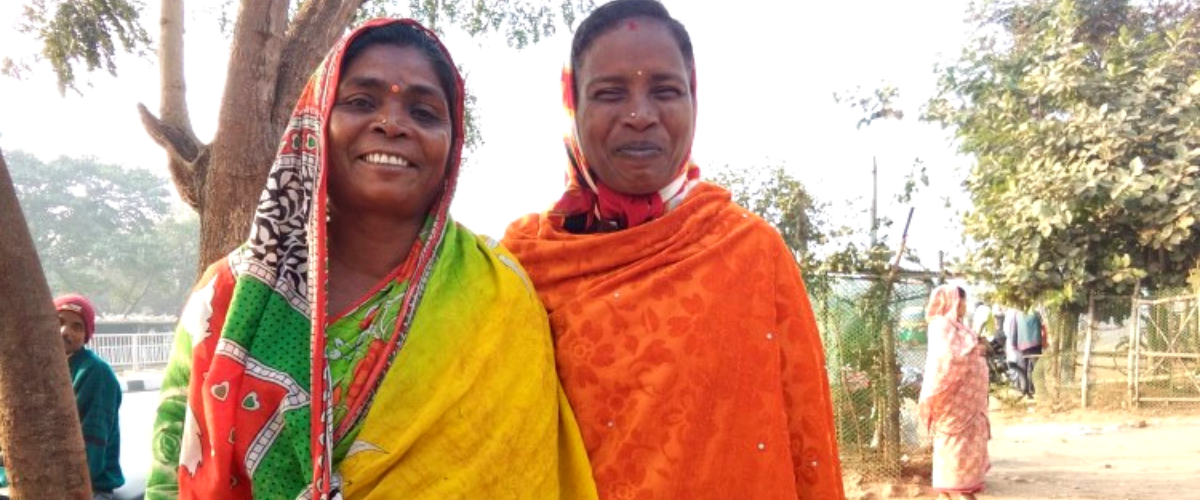I was strolling by the Nayapalli highway, in the city of Bhubaneswar, Odisha. Thereupon, I noticed humans flock into a large mass. As time passed, the long-winged mob became dense.
It was as if something fishy was going on there, probably a fight or a market square. I was curious. I marched towards the swarm and looked deep into the gestures of the people crowded there.
I found a multifold of homo sapiens in all ages, sex, color, background, and category. I could notice a few women and young ladies running in the street, holding scrapers, shovels, baskets, and their tiffins as well.
Some of them were seated on the pavement, some on the shores of the lane and others were strolling on giant boulders or simply hanging out in the lane.

I could even vividly hear the folks gossiping about their worldly affairs. To really understand the purpose of the gathering, I decided to talk to a tea stall owner who was selling tea next to a metallic track. As it was not so easy for me to ask the ‘chai
I asked him in a very low voice, “Bhaina, why have people gathered over here?” He gave me a deadly stare. I thought he wouldn’t say anything. But a few seconds later, he spoke with his rough voice, “I don’t know,” he said. I left the stall confused. Did I do something to offend him? I was unable to explain to him what I wanted and tried for the next inventory.
The long wait for work
After spending a few more minutes wandering around the crowd, I saw two women seated on a stone. I went near them and tried to ask once again the same question.
They both smiled at me. It felt like a green signal for me to ask as many questions as I want. They introduced themselves as Rasmita and Jhilli.
While speaking to them, within a few minutes, a mass of people hovered around me. I was scared. I thought folks here don’t want me to talk to them.

Jhilli saw my confusion and explained, “They thought you came here for hiring us.” They said, “We all gather here daily in the hope of work. We are daily wage laborer. I am working as a wage laborer for the last 10 years.” It amazed me. I continued putting my questions on them. “We are flexible for any work. We get varieties of work every day,” Jhilli replied.
They stand here for very long hours until someone comes and hire them for a day. These people engage in jobs like spice grinding, civil work or home help. But it is unexpected. They are not picked every time.
Once they are selected, they book an auto with 7-10 people and go in a group with their own expenses. They do full-time work and return back at 6 PM or sometimes at 9 PM and earn Rs. 400 at the max.
“I am a mother of two daughters and two sons. My husband and I leave our home and our children every day from 7 AM to 7.30 AM. They don’t go to school. My younger daughter is the same as your age and soon she will tie the wedding knot,” Rasmita added.
In order to get hired by people, they finish all their daily work such as cleaning their house, preparing lunch for the family and then proceed in search of work. Their children stay at home without their Bou (Mom) and Bappa (Dad) for the whole day. They can only see their parents in the morning and in the night for an hour.

“I like cooking,” Jhilli replied with a smile. “I was a 13-year-old teenager when my Bou taught me how to cook. My husband and my children are happy when I cook grilled chicken,” she said.
When I asked her whether she has a tiffin service in mind, she said, “I don’t have an educated friend. I live in the slum where people hardly like to pass by. It’s hard to satisfy the taste of the people every time. I can’t even earn enough to meet the needs of my family. It won’t work for me. This is not my type of job.”
Our society says women are born to serve their family. They are restricted to do a job so that their husbands can maintain their superiority. The girls are often seen tying the wedding knot before they even finish college. Hence, the idea of someday becoming the read winner of the family doesn’t even enter their head. This is one of the main
The women are taught how to manage a household and please their husband by their mother and grandmother rather working towards educating themselves. They spend their whole life, fighting tradition.
Women grow up with a lifetime of patience and an ability to adjust in difficult situations.
They are referred to as the living reincarnation of the goddess Laxmi or Durga, who has 10 hands, which is not just a symbol of power, but also a symbol of multi-tasking. More power to women all over the world.
Photos: Jayanti Das
Originally published here, this story is part of the Milaap Fellowship Program. It is a unique opportunity, providing young professionals with a six-month fellowship to contribute to a cause and cover inspiring stories of change.
Like this story? Please send us emails and share your views at – contact@thestoriesofchange.com. You can follow us on Facebook, Twitter, YouTube and Instagram.












Add comment